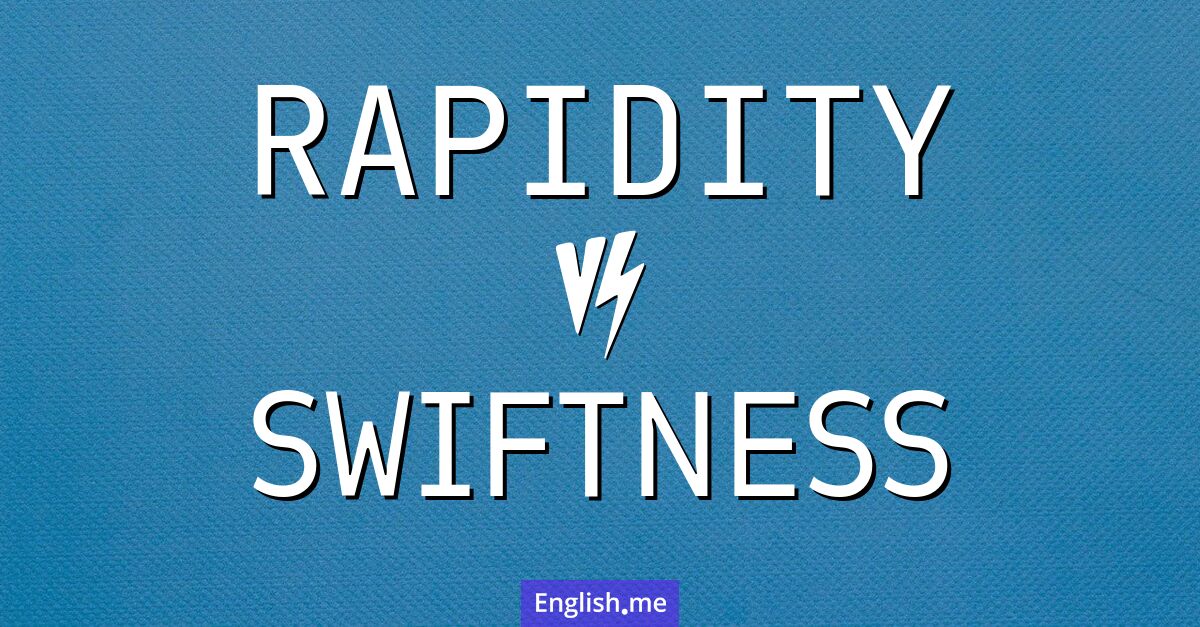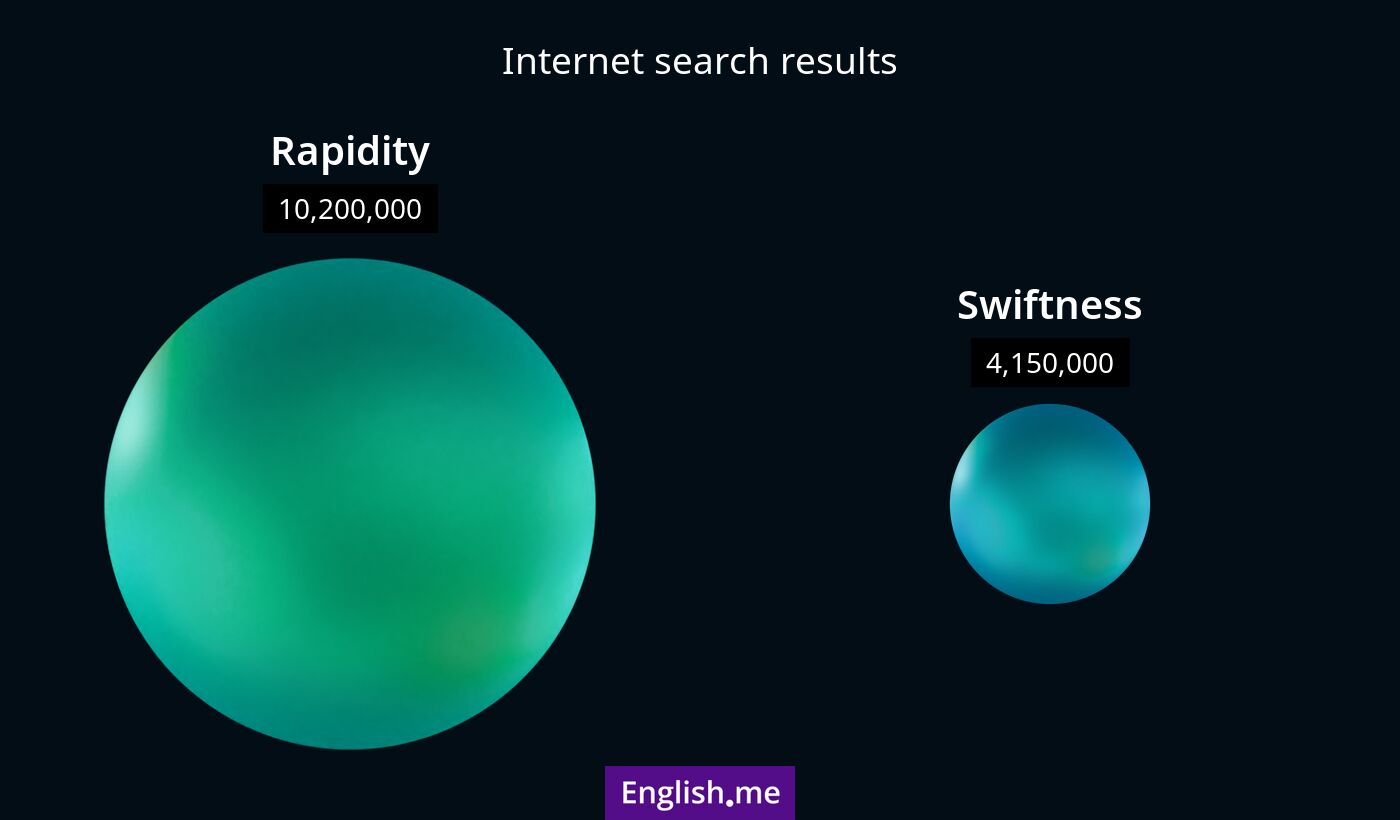"Rapidity" vs. "swiftness": a quick comparison
Reviewed and edited by  Lloyd Cooper 17/03/2025, 07:35
Lloyd Cooper 17/03/2025, 07:35
English.me team member

 What is similar?
What is similar?
Both "rapidity" and "swiftness" are nouns that denote the quality of being fast or quick. They both relate to high speed in movement, action, or occurrence and are often used to describe something happening quickly.
 What is different?
What is different?
"Rapidity" often emphasizes the rate at which something occurs or changes, highlighting the speed of a process or progression. It is frequently used in contexts involving change, development, or events unfolding quickly. "Swiftness" generally emphasizes quickness in physical movement or action, often conveying a sense of agility or ease. It is commonly associated with the speed of living beings or objects in motion.
 Which one is more common?
Which one is more common?

 Examples of usage
Examples of usage
Rapidity- The rapidity of technological advancements is astonishing.
- He was surprised by the rapidity with which the events unfolded.
- The rapidity of her decision took everyone by surprise.
- The cheetah is known for its swiftness.
- She moved with the swiftness of a dancer across the stage.
- The swiftness of his reaction prevented an accident.

 English
English español
español française
française italiano
italiano deutsche
deutsche 日本語
日本語 polski
polski česky
česky svenska
svenska Türkçe
Türkçe Nederlands
Nederlands